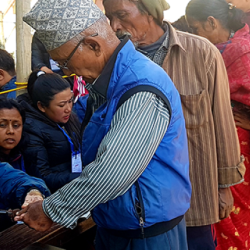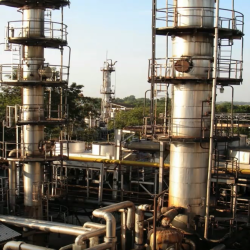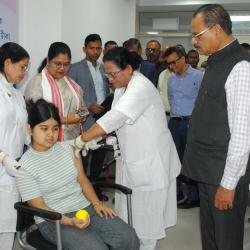Burma’s largest political party, National League for Democracy (NLD), which won 392 seats out of total 492 parliamentary seats, in the country’s general elections of 1990, could not form its government even after its landslide victory, as the military junta regime ignored the verdict of the people and refused to hand over the power to NLD. That was a blatant mockery in the name of election in Burma.
It may be recalled that the people of that country have not forgotten the days when due to deterioration of Burma’s economic situation and oppressive one political party rule on August 8, 1988 (which is also known as 8-8-88), when the workers, monks, peasants, teachers, youth and government servants led by the university students in Rangoon rose up as one to call upon the military rulers to abolish the ill-reputed one party system demanding democracy and human rights in the country. The military responded with bullets against the peaceful demonstrators and killed more than 3000 demonstrators throughout the country. Since then, the Burmese democracy activists have been imprisoned, intimidated, tortured and put to death for demanding justice, peace, human rights and a democratic government. At present there are more that 2100 political prisoners, many of them have been given jail terms for several years and some even up to 106 years without trial. The Nobel Laureate and leader of the Burmese democracy movement, Aung San Suu Kyi has already spent more than 14 years under detention.
It has been learnt that military junta have now planned to conduct general election as part of its own ‘transition to civilian rule process’ (seven steps roadmap to democracy) which is likely to be held by October 10,2010 (10-10-10) . The people are scared of this election due to their past experiences of 8-8-88.
The Burma Centre, Delhi and Journalists’ Forum, Assam, jointly organized a ‘Consultation meeting on 2010 election in Burma and its implication on North East India’ in Guwahati, with the aim of analyzing and examining the impact of 2008 constitution, 2010 election and Burmese peoples’ aspiration and struggle and responses from North East India. General opinion of the participants in the discussion was that, If the election is allowed to go ahead without revision and amendment in the provisions of 2008 constitutions, it will make the Burmese military regime into permanent dictatorship.
Even in the unlikely event these elections are free and fair, they will not bring any real change in Burma, because the fundamentally flawed constitution that allocates vast powers to military, lacks any checks and balances, allows for the ongoing discrimination and persecution of ethnic nationalities, gender discrimination and lacks protection of human rights. Such a constitution will lead the country in conflict and post-conflict situation and will continue to put Burma’s vast problems into neighboring countries and throughout the region, if necessary measures are not taken. The North East India hosts more than one lakh Burmese refugees, which increased rapidly from 60,000 in August 2007 to one lakh in 2008.
- 8009 reads










Add new comment